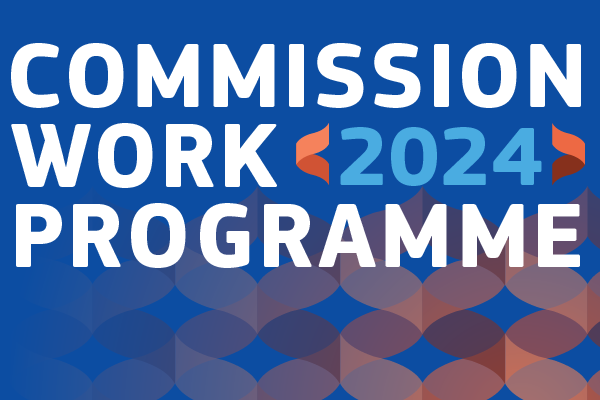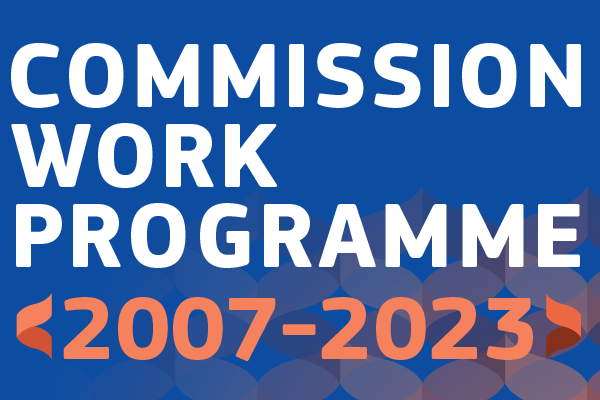Every year, the Commission adopts its annual work programme setting out the list of the most important actions it will take in the year ahead.
The work programme informs the public and the other institutions of our political commitments to present new initiatives, withdraw pending proposals and review existing EU legislation.
The work programme contains new policy and legislative initiatives across all six headline ambitions of President von der Leyen's political guidelines and sets out in more detail in what way the initiatives outlined in her annual State of the European Union address will be delivered.
The work programme does not cover the ongoing work of the Commission as the guardian of the Treaties enforcing existing legislation, or routine initiatives that the Commission adopts every year.
The 2024 Commission work programme focuses on further easing the burden for businesses and rationalising reporting requirements, in line with the strategy to boost the EU’s long-term competitiveness. It includes significant proposals adopted since March 2023 and taken forward with the work programme, tackling concerns of stakeholders and without undermining policy objectives. Future actions for burden reduction will also be laid out in the evaluations and fitness checks announced in the work programme.
Given the European elections in June 2024 and with over 90% of the commitments made in the 2019 Political Guidelines having been delivered, this work programme includes only a limited number of new initiatives on the remaining commitments of this Commission or tackle emerging challenges, building on President von der Leyen’s 2023 State of the Union speech and her letter of intent.
The programme also recalls some 150 priority legislative proposals which have already been tabled by the Commission and which need to be agreed into law by the European Parliament and the Council before parliamentary recess and the end of this mandate.
Timeline
Commission work programme
- Mid-September
The President of the European Commission delivers her State of the Union address before the European Parliament, setting out her political priorities for the year ahead.
The President and the (Executive) Vice-President for Interinstitutional Relations and Foresight send a Letter of Intent to the President of the European Parliament and the Council of the EU Presidency, outlining the specific measures the Commission intends to take following the President’s speech. The letter kick-starts a dialogue with the Parliament and Council.
- September/October
The President meets the European Parliament’s Conference of Presidents;
The Commission takes into account the views of the European Parliament’s Conference of Committee Chairs;
The Commission hears the views of the European Economic and Social Committee and the Committee of the Regions.
- Mid-October
The Commission adopts its annual work programme, and presents it in the European Parliament and to the other institutional partners.
On the basis of the Commission work programme, the Commission, the European Parliament and the Council establish a Joint Declaration on the EU legislative priorities.
EU Have Your Say
You can share your views and ideas on Commission initiatives across all policy areas on the EU Have Your Say portal. It is possible to sign up for notifications regarding new developments as initiatives take shape, including after the adoption of legislation.

The Commission has been seeking evidence and feedback from citizens, businesses, and stakeholders at all stages of the legislative and policymaking process since 2015. Additionally, the Fit for Future Platform high-level expert group helps the Commission in its efforts to simplify EU laws and to reduce related unnecessary costs. The expert group examines whether existing laws achieve their objectives efficiently as we tackle new challenges such as digitalisation.


